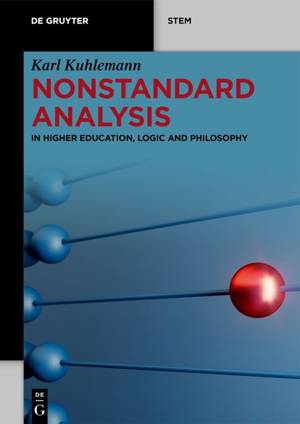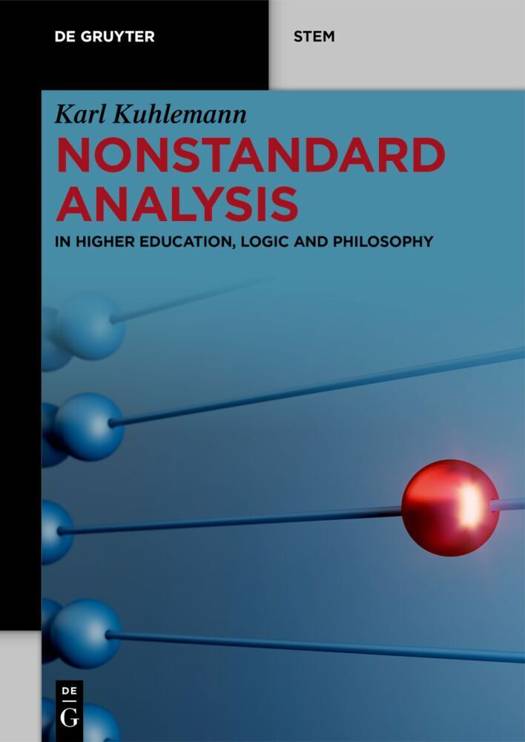
- Retrait gratuit dans votre magasin Club
- 7.000.000 titres dans notre catalogue
- Payer en toute sécurité
- Toujours un magasin près de chez vous
- Retrait gratuit dans votre magasin Club
- 7.000.000 titres dans notre catalogue
- Payer en toute sécurité
- Toujours un magasin près de chez vous
Description
Currently, nonstandard analysis is barely considered in university teaching. The author argues that nonstandard analysis is valuable not only for teaching, but also for understanding standard analysis and mathematics itself. An axiomatic approach wich pays attention to different language levels (for example, in the distinction between sums of ones and the natural numbers of the theory) leads naturally to a nonstandard theory. For motivation historical ideas of Leibniz can be taken up. The book contains an elaborated concept that follows this approach and is suitable, for example, as a basis for a lecture-supplementary course.
The monograph part presents all major approaches to nonstandard analysis and discusses logical, model-theoretic, and set-theoretic investigations to reveal possible mathematical reasons that may lead to reservations about nonstandard analysis. Also various foundational positions as well as ontological, epistemological, and application-related issues are addressed. It turns out that the one-sided preference for standard analysis is justified neither from a didactic, mathematical nor philosophical point of view.
Thus, the book is especially valuable for students and instructors of analysis who are also interested in the foundations of their subject.
Spécifications
Parties prenantes
- Auteur(s) :
- Editeur:
Contenu
- Nombre de pages :
- 234
- Langue:
- Anglais
- Collection :
Caractéristiques
- EAN:
- 9783111428871
- Date de parution :
- 16-12-24
- Format:
- Livre broché
- Format numérique:
- Trade paperback (VS)
- Dimensions :
- 170 mm x 244 mm
- Poids :
- 381 g







